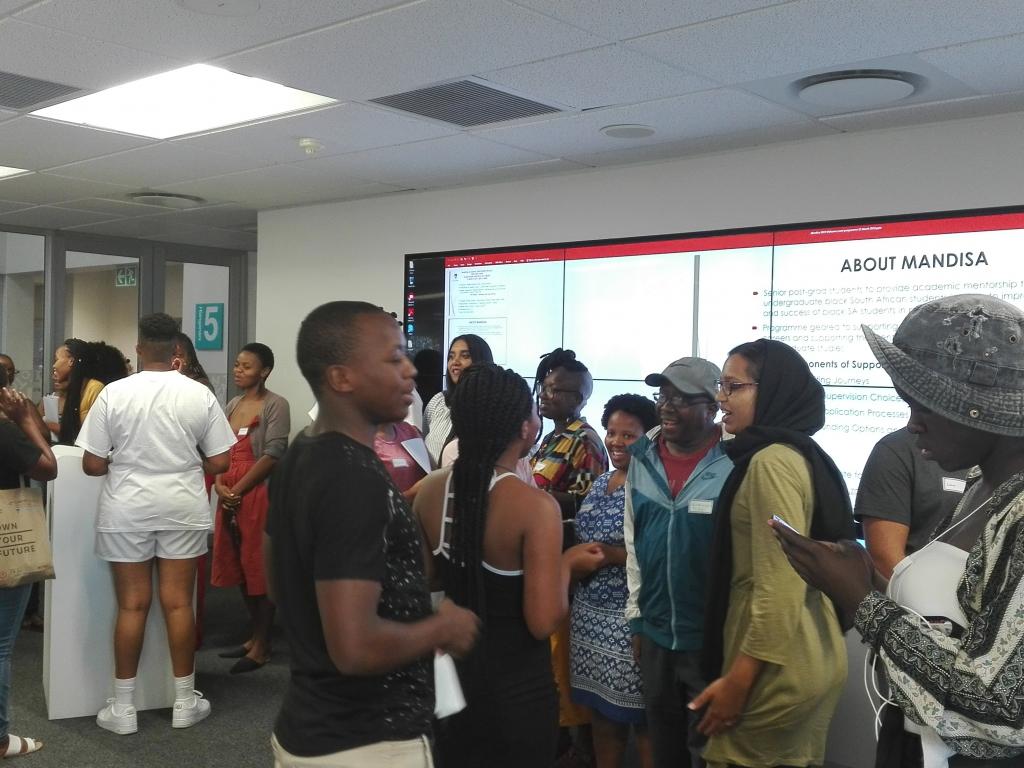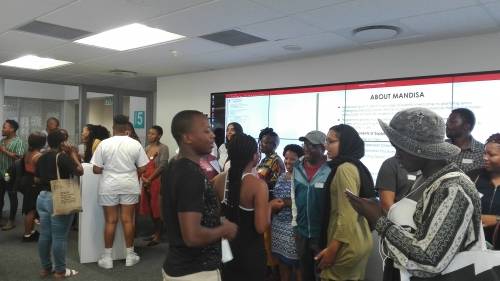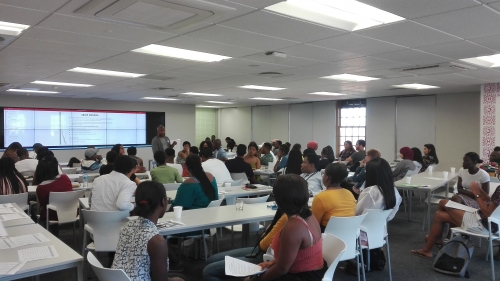EDU Launches Mandisa 2019


Mentors and Mentees connect at the Mandisa launch event
On Friday 15 March 2019, the Humanities Education Development Unit (HUM EDU) welcomed the 2019 cohort of mentors and mentees to the Mandisa Academic Mentorship Project. The Mandisa Project provides multiple layers of academic support that is geared towards improving the representation and success of black SA students in postgraduate studies. The first layer of academic support is to promising senior undergraduate students on the 4-year extended degree programme. These undergraduate students are connected to academic mentors, who are senior MAST or PHD students. This mentor-mentee relationship focuses on the transition from undergraduate to postgraduate studies. As such, the mentor is there to support the mentee to meet academic criteria for honours programmes, to make curriculum choices for postgraduate studies, to meet deadlines for honours applications and postgraduate funding applications. The second layer of of academic support is to mentee graduates who are doing Honours degrees. These Honours students are also connected to an academic mentor. Here the mentor-mentee relationship focuses on becoming a researcher and what research writing entails. The mentor is also there to support the Hons mentee in making decisions and applications for Masters studies. The third layer of support is to mentors as emerging researchers themselves and their roles as mentors. This support is provided by CHED’s Critical Dialogues Group and focuses on the research writing journey and considers inclusive approaches to writing; meaning-making; and making productive use of critical feedback on academic writing.

Sean Samson addresses the mentors and mentees
Mandisa started in 2018 with 20 undergraduate mentees and 5 mentors. 18 of these mentees graduated and are doing honours degrees at UCT in 2019 and will again be connected to a mentor. The mentees spoke highly of the support provided by the mentors in their final undergraduate year. Three of the mentors will also continue in Mandisa in 2019. In addition to these returning mentees and mentors, in 2019 we welcomed 40 new undergraduate mentees and 22 new mentors. We are excited by the growth in the project and hope that we will again have more than 80% of the mentees graduating and doing honours at UCT in 2020. We hope too that those mentors in their final years of Masters and PhD studies will be equally successful and go on to make their mark as new researchers.
The Mandisa project is co-ordinated by Jaamia Galant from HUM EDU and Sean Samson from the Critical Dialogues Group in CHED.